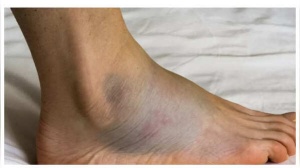The American Academy of Pediatrics released its updated recommendations for vaccines, including COVID-19 shots for infants and young children, which is a break from recent recommendations of the US Centers for Disease Control and Prevention.
“It differs from recent recommendations of the Advisory Committee on Immunization Practices of the CDC, which was overhauled this year and replaced with individuals who have a history of spreading vaccine misinformation,” the AAP said in a press release.
The AAP said that it will continue to provide recommendations for immunizations that are ‘rooted in science and are in the best interest of the health of infants, children, and adolescents.’
“Pediatricians know how important routine childhood immunizations are in keeping children, families, and their communities healthy and thriving,” AAP President Susan J Kressly, MD, FAAP, said.
AAP's announcement comes after US Health and Human Services Secretary Robert F Kennedy Jr decided to halt CDC recommendations for healthy children to receive the COVID-19 vaccine in May. Previously, the CDC had advised that everyone aged six months and older should receive the latest available dose.
AAP’s updated recommendations include routine immunizations for infants, children, and adolescents for 18 diseases, including RSV, influenza, and COVID-19 immunizations. The AAP is strongly recommending COVID-19 shots for children ages 6 months to 2 years. Shots are also advised for older children if parents want their kids vaccinated.
Along with the updated recommendations for three respiratory viruses, the new schedule also incorporates recent updates regarding the pentavalent meningococcal vaccine, the starting age of the Human Papilloma Virus vaccine, and the removal of a hepatitis vaccine that is no longer available.
“The AAP urges every insurer to cover all the vaccines that are included in this immunization schedule,” Dr. Kressly said.
RecommendationsCOVID-19As infants and children at the age of 6 to 23 months are most susceptible to the highest risk of severe COVID-19, AAP recommends the vaccine for them.
Beyond the recommendations for all children under 2, the AAP advises a single dose of age-appropriate COVID-19 vaccine for all children and adolescents aged 2–18 years who belong to the high-risk groups:
- Persons at high risk of severe COVID-19
- Residents of long-term care facilities or other congregate settings
- People who have never been vaccinated against COVID-19
- Persons whose household contacts are at high risk for severe COVID-19
“We extensively reviewed the most recently available data about COVID-19 risks in kids, as well as the safety and effectiveness of available COVID-19 vaccines. It's clear they are very safe for all populations. Among the reasons we decided to move to a risk-based recommendation for healthy older children is the fact that the hospitalization rate for young children and children with underlying medical conditions remains high, in line with rates for many of the other vaccine-preventable diseases for which we vaccinate,” Sean O’Leary, MD, FAAP, chair of the AAP Committee on Infectious Diseases, said.
RSVRespiratory Syncytial Virus (RSV) affects the lungs and airways and is airborne. It also spreads by physical contact.
“Babies who become infected with RSV can get much sicker than older kids because their lungs and airways are so tiny. There are two ways to help your baby get ahead of this serious respiratory illness. Moms who get the RSV vaccine during their pregnancy can pass important antibodies to their developing baby through the placenta. Or new babies can get an RSV shot for RSV season. Well-timed RSV immunizations help babies stay healthy,” Kristina Bryant, MD, FAAP, a member of the AAP Committee on Infectious Diseases, said.
Immunization for infants younger than 8 months who are born during or entering their first RSV season if the pregnant parent did not receive the vaccine during pregnancy, if the vaccination status is unknown, or if the infant was born less than 14 days after the pregnant parent received the vaccine.
Immunization for infants and children 8 through 19 months of age at high risk of severe RSV disease and entering their second RSV season. High-risk infants include children with chronic lung disease, immunocompromise, or cystic fibrosis, as well as other groups.
List of vaccines every infant should be given: Helpful guide for parents
Influenza, aka the flu, is a viral infection of the nose, throat, and lungs. It is airborne. AAP recommends getting annual vaccine shots for all children starting at 6 months.
“The flu can be much more serious than just a cold or run-of-the-mill viral infection, especially for children under the age of 5 or those with conditions like asthma or diabetes. It is also something that kids can catch and spread easily. An annual influenza immunization helps your child’s immune system recognize and resist the virus so they can stay in school, go on playdates, and do the things kids love doing,” Dr. Bryant said.


 5 Overlooked Warning Signs of Colon Cancer: Early Detection Saves Lives
5 Overlooked Warning Signs of Colon Cancer: Early Detection Saves Lives
 Shukla's ISS Arrival Heralds New Era for Indian Space Exploration; Gaganyaan Mission Looms
Shukla's ISS Arrival Heralds New Era for Indian Space Exploration; Gaganyaan Mission Looms
 Vijay Sethupathi Apologizes Amid Controversy Over Son Surya's Film 'Phoenix'; Thalapathy Vijay's Support Revealed
Vijay Sethupathi Apologizes Amid Controversy Over Son Surya's Film 'Phoenix'; Thalapathy Vijay's Support Revealed
 Android Security Alert: Government Warns of Critical Flaws Exposing User Data
Android Security Alert: Government Warns of Critical Flaws Exposing User Data
 Skin Deep: 7 Warning Signs on Your Skin That Could Signal Heart Trouble
Skin Deep: 7 Warning Signs on Your Skin That Could Signal Heart Trouble
 Ashada Gupt Navratri 2025: Dates, Significance, and How to Observe This Hidden Festival
Ashada Gupt Navratri 2025: Dates, Significance, and How to Observe This Hidden Festival
 Smith Eyes Grenada Test Return After Injury Layoff
Smith Eyes Grenada Test Return After Injury Layoff
 Staying Hydrated May Significantly Lower Risk of Heart Failure, New Study Suggests
Staying Hydrated May Significantly Lower Risk of Heart Failure, New Study Suggests
 Moto G54 Price Slashed in India: Check Out the New, Lowered Costs
Moto G54 Price Slashed in India: Check Out the New, Lowered Costs
 Gambhir Sidelines Pant's Twin Tons After India's Test Loss, Emphasizes Team Performance
Gambhir Sidelines Pant's Twin Tons After India's Test Loss, Emphasizes Team Performance